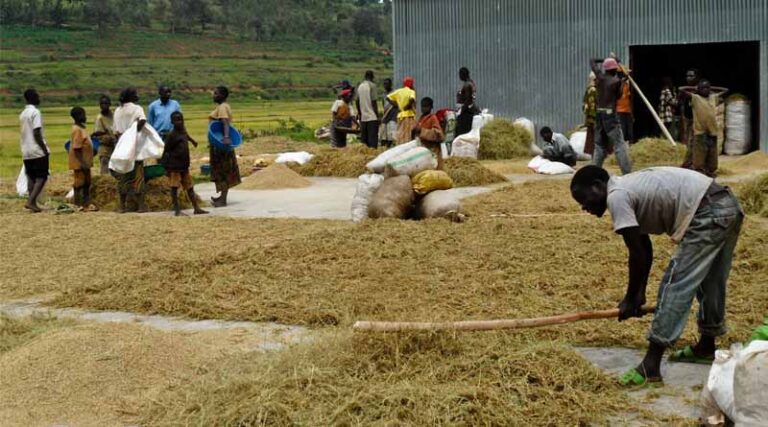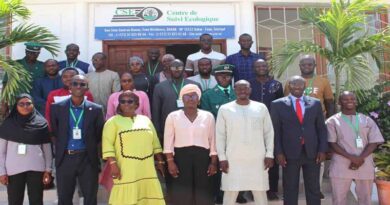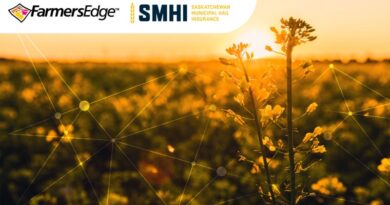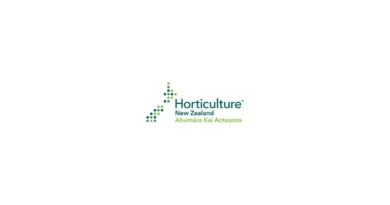
IRRI at COP30 Shares Key Research And Insights Into Community-Based, Gender-responsive Climate Adaptation
28 November 2025, Brazil: As global climate negotiations shift focus from pledges to practical implementation, the 30th Conference of the Parties (COP30) held in Brazil this November championed a fundamental rethinking of how development and climate research are conducted. Central to this transformation is the concept of Locally Led Adaptation (LLA), an approach that shifts power and decision-making to the communities most vulnerable to climate shocks.
The International Rice Research Institute (IRRI), represented by Principal Scientist Dr. Jon Hellin, was a prominent voice across four LLA dialogues at COP30, sharing how robust scientific research can be operationalized to support community agency, ensure gender equity, and unlock crucial adaptation finance.
Business unusual
On November 13, a session titled “Locally led climate adaptation: a ‘business unusual’ agenda for research and development”, addressed the widely recognized challenge that while the principles of LLA have been established and broadly agreed upon, the theory of LLA remains far ahead of its practice.
LLA sits within the broader context of transformative adaptation, which seeks to tackle the root causes of vulnerability. Dr. Hellin noted that if the objective is to move toward sustainable and equitable adaptation pathways, efforts must be locally led. He emphasized that researchers and development practitioners bear the onus to provide a convincing narrative on how LLA can be operationalized, allowing financing to follow due to tremendous existing interest. He referenced a recent meeting with institutions like the World Bank, IFC, and the Gates Foundation, specifically focused on how to best operationalize LLA principles.
To support this shift, the session presented various innovative approaches contributing to LLA implementation. These include:
- Living Labs, which act as infrastructure for innovation, centering local people and innovation based on real-world contexts. These are multi-stakeholder and multi-sectoral, and rely on iterative, user-centered innovation processes.
- Positive Deviance Approaches, which identify pioneer farmers (positive deviants) who are already adapting successfully, then supporting their practices as they lead the community’s scaling efforts.
- Community-Based Adaptation (CBA) Planning, guided by LLA principles, integrates local adaptation plans into the budget of the local government, ensuring that implementation is facilitated, not solely driven, by development actors.
IRRI’s expertise in this area is in professionalizing methodologies and providing analytical rigor to understand what works where and for whom. Research institutions like IRRI and CGIAR will deliver integrated system thinking, focusing on collective actions across disparate systems. Furthermore, they have a key role in brokering partnerships with donors, governments, and NGOs.
Building adaptation pathways
Dr. Hellin also served as a panelist in the event “Equitable Pathways for Adaptation Finance”, which discussed the critical connection between climate impacts, social inequities, and access to funding.
The event recognized that adaptation strategies must evolve beyond infrastructure-heavy responses into approaches that embed equity, social protection, and resilience in everyday systems. Dr. Hellin discussed the institutional models and partnerships that have been effective in building and sustaining local data systems to de-risk adaptation investments. He also shared lessons learned from interdisciplinary approaches that combine climate change mitigation with adaptation and resilience, highlighting IRRI’s focus on integrated solutions that can deliver co-benefits across sectors, helping to avoid siloed investments.
The event noted that despite the growing recognition of LLA’s value, significant barriers remain, particularly financing and data gaps. Addressing the lack of hyperlocal climate and livelihood data is crucial for structuring adaptation investments effectively.
Investing in women
IRRI also jointly organized a United Nations Framework Convention on Climate Change (UNFCCC) side event with the Bangladesh Rural Advancement Committee (BRAC), the Asian Development Bank (ADB), Women Organizing for Change in Agriculture and Natural Resource Management (WOCAN), and the Huairou Commission.
Titled “Harvesting Hope: Gender-Responsive Financing for Climate-Resilient Agriculture”, the session presented the opportunities in empowering women smallholder farmers, who despite sustaining local food production and conserving biodiversity, receive less than 1% of global climate finance.
IRRI showed that gender-responsive frameworks can be integrated into national and regional food security strategies to strengthen the resilience of rice-based food systems. BRAC shared insights on how it brought locally led solutions to scale, connecting finance and climate services to women farmers.
Innovative finance pathways to close the gender-climate gap and unlock women’s leadership were also showcased. The Huairou Commission’s Community Resilience Fund provides grants to grassroots women’s groups, repositioning them as leaders and innovators capable of attracting government and private sector partners. WOCAN’s W+ Standard showed how measuring gender outcomes and establishing benefit-sharing mechanisms can turn carbon and nature-based projects into adaptation revenue. ADB highlighted its efforts to mobilize blended finance and connect locally led, gender-responsive initiatives to scalable regional investment pipelines, integrating adaptation into food systems and infrastructure.
By emphasizing measurable, inclusive, and locally anchored adaptation models, the session reinforced the need to align research, finance, and practice to deliver effective, gender-responsive solutions that work for farmers on the ground.
The future of food systems
The focus on inclusion continued on November 14 at the session “Gender, Youth & the Future of Food Systems in a Changing Climate: Voices, visions, and innovations shaping tomorrow”. The dialogue aimed to make a strong case for sustained investment in young women and youth as catalysts for equitable, resilient, and sustainable food, land, and water systems.
Dr. Hellin provided the introductory framing for the session, where he highlighted that gender and youth inclusion should be the foundation, not an afterthought, of climate-resilient food systems.
The session showcased various case studies on gender-responsive, youth-led innovations, which helped to elevate the leadership and visibility of young women to build momentum toward the 2026 Year of the Woman Farmer. The discussion explored how research institutions, such as CGIAR, could collaborate closely with youth, entrepreneurs, and policymakers to ensure innovations are both evidence-based and grounded in local realities. The importance of involving youth in scaling innovative financial models was also raised, such as using fintech to close inclusion gaps for women and youth in agriculture.
Approaching adaptation through co-creation
Across all four events, IRRI advocated processes that focused on the capabilities, priorities, and interests of agricultural producers. The foundation of this approach is co-creation, which involves creating a collaborative space where stakeholders, including government, academia, and local actors, each participate in creating system-wide transformation, not just isolated projects.
As COP30 measures progress toward the Global Goal on Adaptation, IRRI’s research and contributions underscore that LLA is at the foundation of just and resilient food, land, and water systems, and that success should also be seen in terms of strengthened local agency, rather than just infrastructure built or hectares covered.
Also Read: Global Biostimulant Market Reaches USD 4.47 Billion as Industry Signals Maturity
📢 If You’re in Agriculture, Make Sure the Right People Hear Your Story.
From product launches to strategic announcements, Global Agriculture offers unmatched visibility across international agri-business markets. Connect with us at pr@global-agriculture.com to explore editorial and advertising opportunities that reach the right audience, worldwide.






